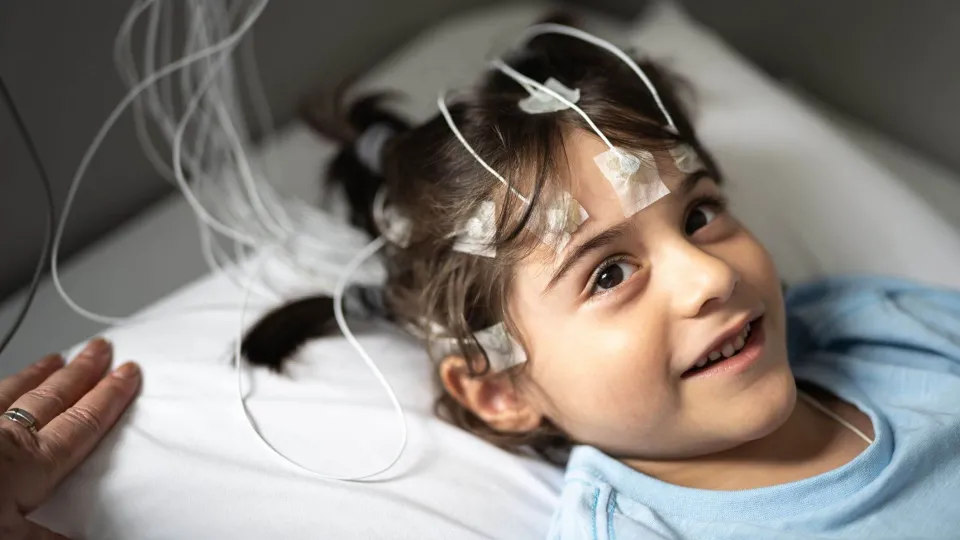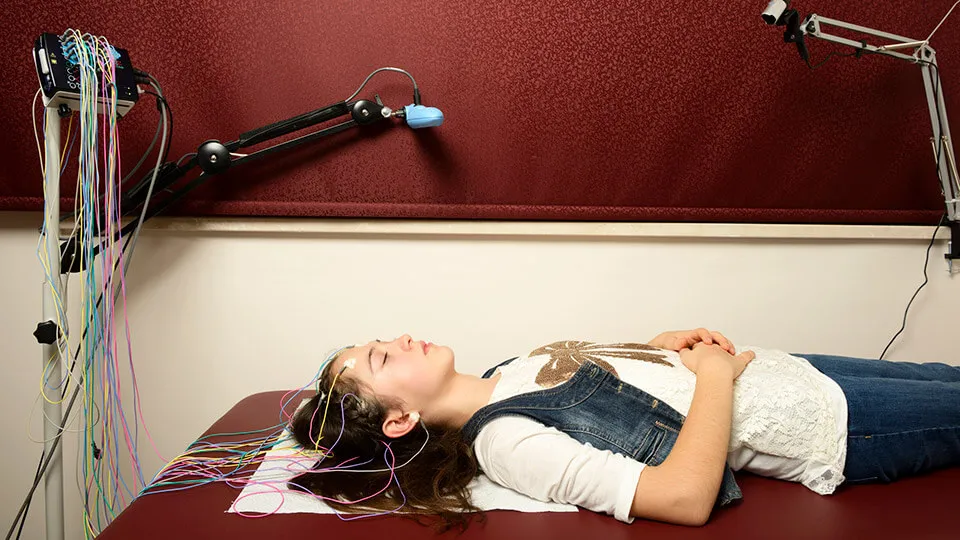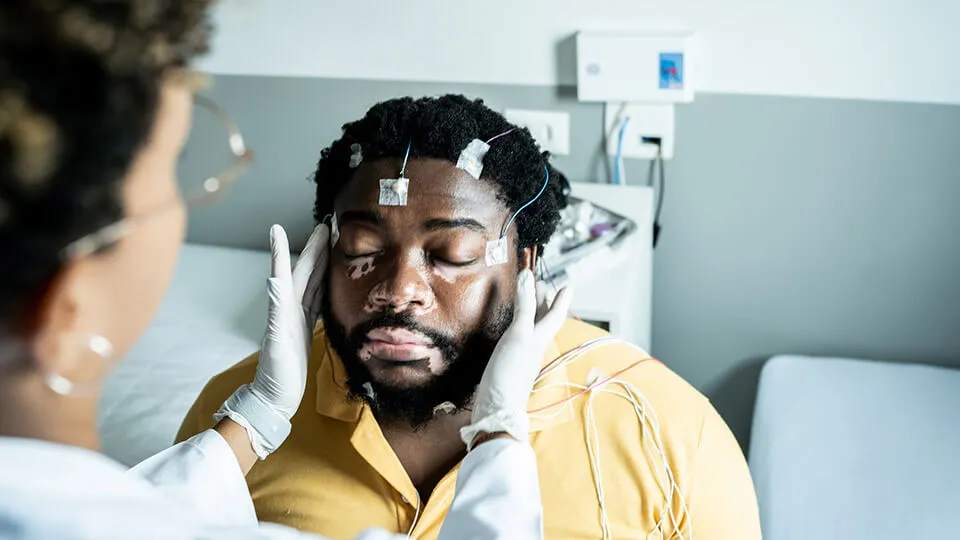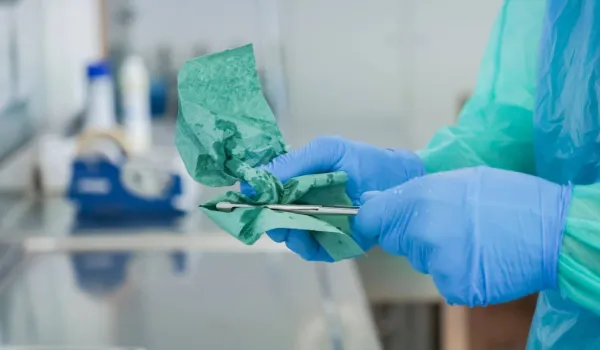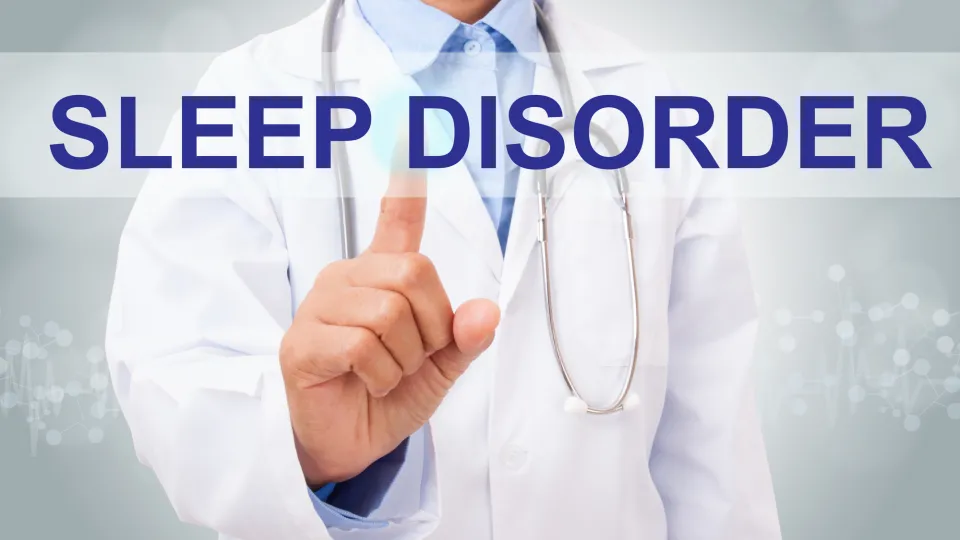
Describing what a Polysomnographic Technologist (PSG tech) is could be considered easy. A Polysomnographic Technologist studies brain patterns in those with sleeping disorders to find ways to help people sleep better.
Trying to fully answer the question "What does a polysomnographic technologist do" is more complicated. Studying, recording and treating sleep disorders is at the heart of it, but there is so much more that's involved. It can be time intensive and something that requires much attention to detail.
It takes a certain kind of person to be a good Polysomnographic Technologist. We have students working hard to be good sleep techs in our Polysomnographic Technologist programs at Concorde. But, we thought we'd take a closer look at the personal qualities it takes to be successful in the field, according to one of our PSG program directors.
Qualities that make a good Polysomnographic Technologist
"They must be a person who likes to fix things," said Chris Lockhart, A.A.S., Polysomnography Program Director for Concorde's campus in Memphis, TN.
Lockhart said being a PSG tech is one of the only health care professions where not only do you get to lead the physician to a diagnosis, but you also get to fix the problem.
"You get a great sense of accomplishment in the PSG field," he said. "Take for example nursing or radiology. Often, you get to determine the issue or diagnosis, but in both cases, the physician treats the patient. While it is true in the PSG field the physician also diagnoses the patient, the PSG tech is the extension to the physician who completes the physician's orders for that patient."
The Polysomnographic Technologist must be an independent motivator
Working in the PSG field, you often are on your own. Leadership and management are in bed asleep so you are left to make decisions and determinations that could affect the outcome of patients' overall quality of care.
"Anyone who has to wait for someone to tell them what to do would not thrive in the PSG field," Lockhart said.
A Polysomnographic Technologist must have product knowledge
Often, new advances in CPAP therapy are discovered and continuing education on product knowledge is very important. Consequently, new advances offer quality and comfort that would greatly benefit the patient.
A Polysomnographic Technologist must have the ability to make decisions that would benefit the patient
When the treatment portion of a PSG study takes place, it's very important to have a vast knowledge of the products at his/her disposal, Lockhart said. Often times, techs will ask a patient what type of CPAP mask they would like to use. It is the sleep tech's role to have an understanding of what should be most comfortable for the patient.
"I use this analogy when explaining this aspect to students and even current PSG techs," Lockhart said. "Would you go to your doctor with an illness and tell the doctor what medication he/she should prescribe you? Would you go into surgery and tell the surgeon what scalpel to use to make an incision?"
"As such, all CPAP masks are prescription items and should be treated as such."
Interested In How To Become a Polysomnographic Technologist?
Click here to explore Polysomnographic Technology Programs near you!
Take The Next Step Towards a Brighter Future
Interested in learning more about our Polysomnographic Technology program?
We have a Concorde representative ready to talk about what matters most to you. Get answers about start dates, curriculum, financial aid, scholarships and more!

